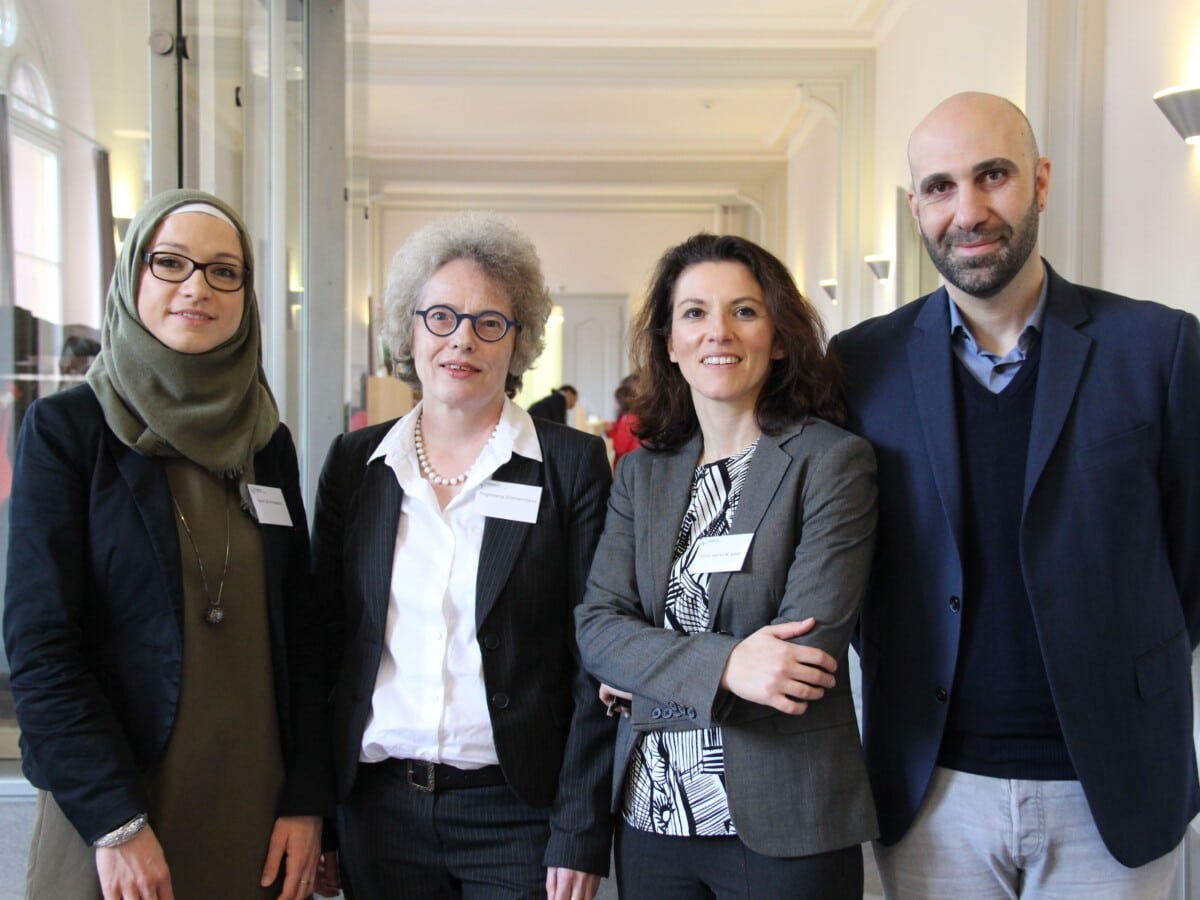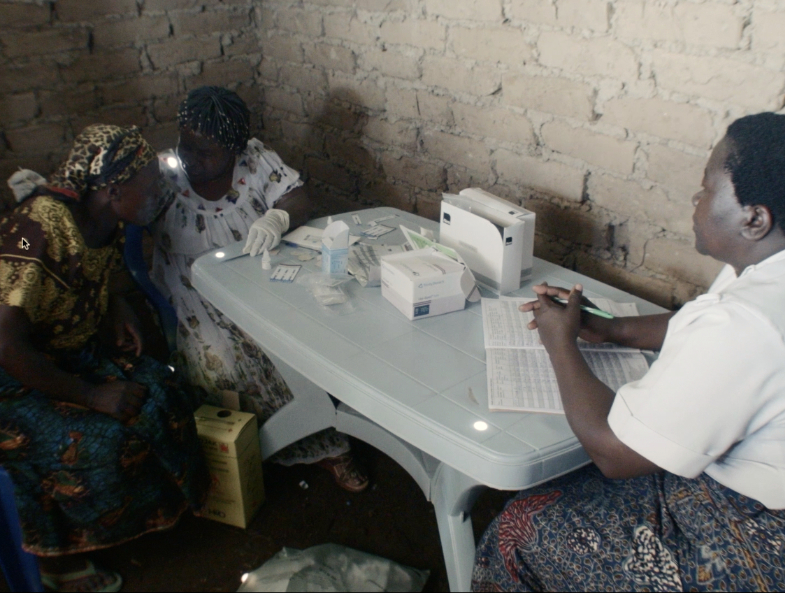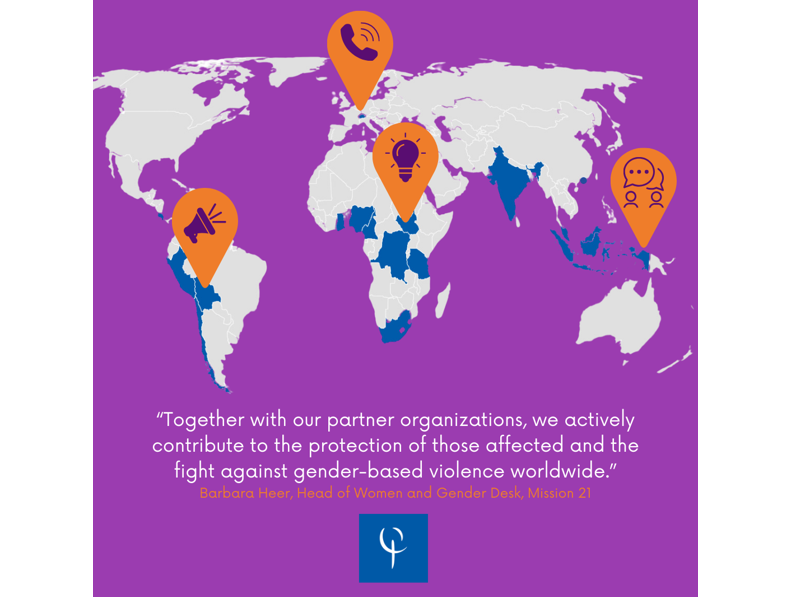The topic of gender roles in religions moves people and heats up emotions. The great interest in this topic was also reflected on March 5 in the Mission House in Basel: full rows of chairs, attentive faces in the audience. More than a hundred men and women came to the Missionshaus, some of them from far away. The multifaceted presentations and workshops on the topic were held by four experts from the fields of psychology, Islamic studies and development cooperation and made one thing clear above all: without a differentiated view of the topic, we will not get anywhere.
Of honor and father figures
Probably the most prominent speaker in the panel, the German-Palestinian psychologist and Islamism expert Ahmad Mansour, also came across as differentiated - even though he formulated his observations and analyses clearly and strikingly. Mansour asked why young men become violent in the name of "honor" or radicalize and become Islamist fighters or assassins. Studies of such cases revealed commonalities: a patriarchal home, a lack of a father figure, exclusion at school, and more.
The patterns are similar among right-wing radicals: the problems are not primarily religious, but psychological. In their personal crises, young people find support in radicals who offer them a supposed "liberation" from patriarchal structures. That is why other offers are needed to pick up the young people: prevention, support for families, equal rights for boys and girls, and breaking down sexual taboos. Central to this, he said, was further training for teachers and people in social professions so that they could better deal with the challenge.
God as a sexless being
The presentation of the Islamic scholar Esma Isis-Arnautovic revolved around the topic of Islam and corporeality. In a very matter-of-fact and unagitated manner, she introduced the Islamic practice of the body, menstruation in Islam, the topic of purity and the physicality of God and man. She pointed out that God in Islam is not anthropomorphic and thus neither male nor female - a good prerequisite for an equal interpretation of religion. In Islam, the human being is also born without original sin and the religion is - contrary to popular assumptions - not hostile to the body: "Sexuality is also allowed to be quite pleasurable in Islam!"
Isis-Arnautovic clarified some misconceptions and prejudices about Islam. But the self-confessed feminist also put her finger on ambivalent and problematic aspects of her own religion: "For men, the pubic area in Islam extends from the belly button to the knees, while for women almost the entire body is declared a pubic zone. This is, of course, problematic."
Gender roles in international cooperation
In her presentation, Magdalena Zimmermann made the connection to international development cooperation. Based on observations, she stated: Having the same religion and similar beliefs does not yet lead to women and men being treated equally in different societies. Cultural and social differences also play a role in the fact that women are at a great disadvantage compared to men worldwide.
What does this mean in concrete terms in development cooperation in dealing with gender roles? The answer lies in the principles of culturally sensitive observation and participation. It is necessary to understand other societies as complex systems and to recognize power relations. This gives us a chance to initiate change. And for these changes to be successful and sustainable, participation is the decisive factor. If women can contribute their needs and help plan the project, this makes a decisive contribution to its success. A prerequisite for all of this, of course, is to be able to reflect on one's own gender role, Zimmermann concludes.
Unambiguous answers fall short
"Gender roles in Islam: oppression or equality?" That was the question posed by Islamic scholar and SRF Sternstunde presenter Amira Hafner-Al Jabaji during her talk. The fascinating lecture made it clear above all that both answers to the complex gender issue are too one-sided. This can be seen, for example, in the often very emotional debate about whether a woman can be a Muslim and a feminist at the same time. "It is often argued by opponents that such women are either not real Muslims or only half feminists." Equally apologetic, however, is the argumentation of some Muslim feminists, in whose eyes women owe their recognition as real human beings to Islam in the first place.
In her presentation, Hafner-Al Jabaji made it clear that religion must never be viewed as an isolated set of values, but always contextually. Through exciting and sometimes surprising facts and historical comparisons, she suggested that the stubborn persistence of patriarchy in the Muslim world is due less to its actual content than to economic and sociological developments in these same regions of the world.
The event showed that gender roles and patriarchy are not primarily the result of individual religions, but of a complicated interplay of culture, economics and history. This insight, however, does not absolve religions and their faith communities, quite the contrary. As psychologist Ahmad Mansour concluded, "I observe that the debate is very polarized and moralizing. On the one hand, religions and Islam in particular are often demonized as oppressive evils. On the other hand, there is a multicultural naiveté that downplays problematic religious content and practices."
So a nuanced debate is important. One that acknowledges that it is complicated. For the religious scriptures - depending on how they are interpreted - hold both the potential for equality and feminism, and for the legitimization and consolidation of patriarchal structures.
Text: Christoph Racz and Mara Wirthlin
The symposium in the media:
► Radio SRF 2 Kultur: "Perspectives" from March 25, 2018






